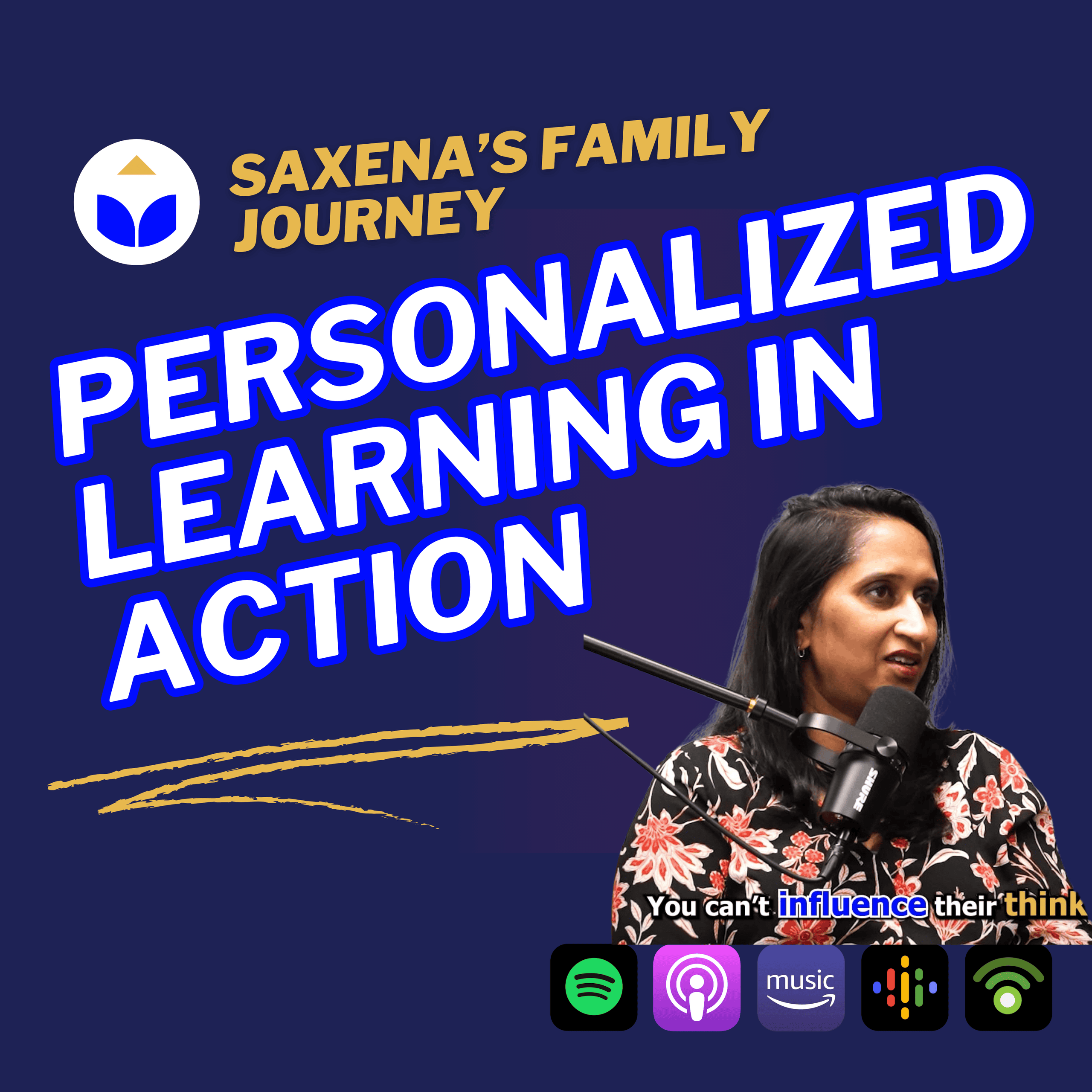Raising Resilient Kids: How Family Values Shape Academic Success

Resilience is one of the most valuable traits a child can develop, helping them confidently navigate academic challenges, personal setbacks, and future career obstacles.
In the first episode of Learning by Design, Ana Saxena shared her family's inspiring journey in fostering resilience through strong family values. Her experiences provide powerful lessons for parents, educators, and leaders striving to cultivate perseverance and academic excellence in the next generation.
Family's Role in Building Resilience
Resilience isn’t something children develop overnight; it is nurtured through consistent support, communication, and guidance. Ana Saxena’s story highlights the importance of creating a home environment that reinforces problem-solving, adaptability, and emotional security.
1. Communication: The Foundation of Resilience
Ana emphasizes that open and honest communication is key to fostering resilience. In her household, discussing challenges and setbacks was never discouraged but rather embraced as a learning opportunity.
- Encourage daily check-ins with your child about their experiences and feelings.
- Normalize discussions about failure and how to overcome it.
- Guide without imposing solutions, allowing children to think critically.
2. The Power of Family Support
Ana shares how her family’s unwavering support gave her children the confidence to tackle academic challenges. The Saxena household operates on the belief that no one faces struggles alone—a principle that reassures children they always have a support system to rely on.
- Celebrate both small and big achievements as a family.
- Encourage children to ask for help when needed.
- Reinforce the idea that setbacks are temporary and solvable.
3. Instilling a Growth Mindset
A growth mindset—the belief that abilities and intelligence can be developed through effort—is a core principle in the Saxena home. Ana’s parenting approach mirrors the concept of Gradual Release of Responsibility (Fisher & Frey, 2008), commonly used in education, where guidance is offered when needed but independence is gradually encouraged.
- Teach children that failure is part of the learning process.
- Praise effort and perseverance, not just results.
- Model resilience by demonstrating problem-solving and adaptability in your own life.

Have insights or experiences on building resilience in children? Share your thoughts in the comments, or join us for more inspiring discussions on the Learning by Design podcast!
How Family Values Drive Academic Success
Academic excellence isn’t solely about intelligence; it is deeply intertwined with perseverance, adaptability, and self-discipline. Ana’s children, Kunal and Ishaan, excelled academically not only because of their intellectual abilities but also because of the values instilled in them from a young age.
1. Discipline and Time Management
Kunal’s journey through the rigorous TJHSST classes required structured planning and self-discipline. Ana helped him establish routines and strategies to manage his time effectively without micromanaging his every move.
- Encourage children to create study schedules and set goals.
- Allow them to take ownership of their responsibilities.
- Support but do not over-control their academic journey.
2. Balancing Independence and Guidance
While parents play a critical role in shaping academic habits, Ana modeled the gradual release of responsibility at home —starting with close supervision and progressively allowing children to take charge of their learning.
- Let children make age-appropriate decisions.
- Guide them in setting realistic academic and personal goals.
- Step back gradually, offering help when necessary.
3. Valuing Personal Growth and Mentorship
Ana’s family holds deep respect for educators, a value often emphasized in Asian cultures. Her children, Kunal and Ishaan, internalized the importance of learning not just for grades but for personal growth.
- Foster a household culture where education is respected and prioritized.
- Encourage children to engage with teachers and seek mentorship.
- Teach them that learning is a lifelong journey, not just a means to an end.
The heart of the prudent acquires knowledge, and the ear of the wise seeks knowledge
Proverbs 18:15, NKJV
Cultivating Resilience for Lifelong Success
Ana Saxena’s parenting approach provides a blueprint for raising resilient, academically successful children. By fostering open communication, providing unwavering support, and instilling strong family values, parents can help their children develop perseverance, adaptability, and self-confidence—skills that will serve them well beyond the classroom.
For parents, educators, and leaders, the key takeaway is this: Resilience is built through consistent guidance, structured independence, and an environment that values learning. When families instill these principles early on, children are better equipped to handle challenges, thrive in their academic journey, and grow into confident, capable individuals.

Kunal Saxena talks about his academic journey at TJHSST!
Have insights or experiences on building resilience in children? Share your thoughts in the comments, or join us for more inspiring discussions on the Learning by Design podcast!
